Dergi Kurulları
Onursal Kurul Üyeleri

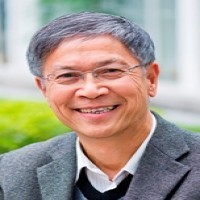
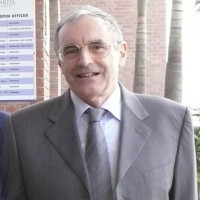
René LOZI is emeritus Professor at University Cote d’Azur, Dieudonné Center of Mathematics, France. He completed a PhD in 1975 and the French State Thesis (on chaotic dynamical systems) under the supervision of Prof. Rene Thom (Fields medalist) in 1983.In 1991, he became Full Professor at University of Nice and IUFM (Institute for teacher trainees). He has served as Director of this institute (2001-2006) and as Vice-Chairman of the French Board of Directors of IUFM (2004- 2006). He is a member of several editorial boards of international journals. In 1977, he discovered a particular mapping of the plane having a strange attractor (now, commonly known as "Lozi map"). Nowadays, his research areas include complexity and emergence theory, dynamical systems, bifurcations, control of chaos, cryptography based on chaos, and recently memristors (physical devices for neurocomputing) and artificial intelligence. He is working in those fields with renowned researchers from many countries. He received the Dr. Zakir Husain Award 2012 from the Indian Society of Industrial and Applied Mathematics during the 12th biannual conference of ISIAM at the University of Punjab, Patialia, (India) in January 2015. He received the C.S. Hsu Award 2024 for distinguished scholars in Nonlinear Dyanamics and Control, issued annually by the Nonlinear Science and Complexity Conferences Series, in August 2024 at the Sichan university of Yibin, China. Since August 2023, he is Vice-President of the International Society of Difference Equations.
Baş Editör
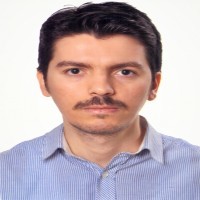
Dr. Akif AKGUL was born in Izmir, Turkiye. Dr. AKGUL received his B.S. degree in Electronics-Computer Education from Kocaeli University in 2009 and in Electrical-Electronics Engineering from Sakarya University in 2013, M.S. and Ph.D. degrees from Sakarya University in 2011 and 2015, respectively, in Electronics-Computer Education and Electrical-Electronics Engineering. His Ph.D. thesis work was on chaos-based cryptology. He has been to The Institute of Electronics, Communications and Information Technology (ECIT) of Queen's University Belfast, United Kingdom in 2015 as a Visiting Researcher. His current research interests include random number generators, cryptology, data hiding, blockchain, IoRT, chaos-based engineering applications. Currently, he is Professor at the Department of Computer Engineering, Faculty of Engineering, Hitit University, Turkey, where he has been involved in projects concerning the study of chaos-based applications.
Yardımcı Editörler

He received a Bachelor Degree in Physics by the University of Valladolid, Spain, in 1981, where he was granted the Outstanding Graduation Honor for Undergraduate Studies, and a PhD Degree by the National University at a Distance (UNED), Madrid, Spain in 1990, on Nonlinear Dynamics and Chaos. Professor of Physics at the Universidad Rey Juan Carlos, Madrid, Spain. He is the Director of the Research Group in Nonlinear Dynamics, Chaos and Complex Systems. Author of numerous publications in research journals, and of several books. He is Associate Editorial Board Member of several international journals in Nonlinear Dynamics and Chaos. He is the Editor-in-Chief of the Journal of Applied Nonlinear Dynamics. He has given invited lectures in many universities in Spain, Europe, USA, Canada, China, Japan, India, Australia, South America and Africa. He has been a Visiting Research Associate of the Institute for Physical Sciences and Technology of the University of Maryland, the University of Tokyo, Visiting Research Professor at Beijing Jiaotong University, Visiting Professor in Kaunas Technological University, Lithuania, and Guest Professor of Lanzhou University and Zigong University, China. Fellow de la Japan Society for the Promotion of Science at the University of Tokyo. In 2017, he was a Fulbright Visiting Research Scholar at the University of Maryland. First recipient of the Chieh-Su Hsu Award (2020) for distinguished scholars in Nonlinear Dynamics and Control. In 2022 he was the first recipient of the James Yorke Award for his breakthrough achievements in Nonlinear Dynamics and Chaos. He is Honorary Professor of Sichuan University of Science and Technology (Zigong, China), and Honorary Professor of Huaqiao University (Xiamen, China). He is currently the Editor General of the Spanish Physics Society. Member the EPJ Scientific Advisory Committee of the European Physical Society. He is a Full Member of the Spanish Academy of Sciences, a Foreign Member of the Lithuanian Academy of Sciences, a Foreign Member of the Serbian Academy of Nonlinear Sciences and a Regular Member of the Academia Europaea-The Academy of Europe.
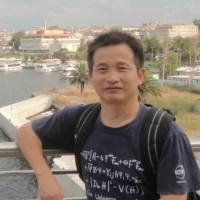

Yeliz Karaca is an Associate Professor of Applied Mathematics, and a Senior Researcher Professor at the University of Massachusetts Chan Medical School (UMASS), USA; collaborator at Massachusetts Institute of Technology (MIT), USA. She received her Ph.D. degree in Mathematics with the dissertation entitled “Constituting an Optimum Mathematical Model for the Diagnosis of Multiple Sclerosis” from Marmara University, Türkiye in 2012. Among the other awards she has been given, she was also granted the “Cooperation in Neurological Sciences and Support Award” by Turkish Neurology Association as the first mathematician in Türkiye. She also holds a "medical card" as the only mathematician entitled for it. Furthermore, she received the Outstanding Young Scientist Award in 2012 and Best Paper Awards in her specialized discipline in 2012, 2013, 2014, 2016, 2017, 2019, 2020 as well as 2023, among the other awards in different categories. Another award of hers is Outstanding Reviewer Award (Mathematics Journal, MDPI) in 2021.
As for some publications, Dr. Karaca has a book entitled "Computational Methods for Data Analysis" published in 2018 by De Gruyter. Another publication is an edited book named "Computational Science and Its Applications" – Lecture Notes in Computer Science (ICCSA 2020, with series 1-7) by Springer. Her edited book is entitled "Multi-Chaos, Fractal and Multi-Fractional Artificial Intelligence of Different Complex Systems", published by Elsevier in 2022. Another work is entitled Computational Science and Its Applications – Lecture Notes in Computer Science (ICCSA 2023, with series I-9) by Springer. Another book is entitled Intelligent Fractal-Based Image Analysis: Applications in Pattern Recognition and Machine Vision, which is under the publication process by Elsevier. Besides these, another publication under publication process is a single-authored book, named "Computational and Mathematical Neuroscience, Biology & Medicine: Clinical and Medical Applications" by Wiley-IEEE Press.
She is the Editor-in-Chief of the book series named “Systems Science & Nonlinear Intelligence Dynamics” (https://www.worldscientific.com/series/ssnid) by World Scientific. She has been acting as an editor, guest editor and associate editor in many different issues in SCI indexed journals such as IEEE Access; Electronics, MPDI; International Journal of Big Data and Analytics in Healthcare (IJBDAH); ICCSA2020-Lecture Notes- Springer; Fractal AI-Based Analyses and Applications to Complex Systems, Fractals- World Scientific among others. In addition, she is the leading guest editor of several special issues, one of which is "Fractals-Fractional AI-Based Analyses and Applications to Complex Systems" (Part I, II, III, IV) at Fractals Journal, World Scientific. Some of the other special issues she has been running are as follows: “Advanced fractional calculus, differential equations and neural networks: analysis, modelling and numerical computations", at the Physica Scripta Journal – IOP science; “Advanced Fractals and Fractional Calculus with Science and Engineering Applications: Computing, Dynamics and Control in Complex Systems" (Part I, II) at the Applied Mathematics in Science and Engineering Journal, Taylor&Francis and "Dynamic Diseases: Mathematical Informed Expert and Knowledge Computing Technology-based Computational Medicine in Complex Systems", at Frontiers in Bioscience-Landmark.
Dr. Karaca has also been acting as a chair, co-chair, member of Advisory Scientific Committee and special session organizer of international conferences some of which are as follows: Image Processing, Wavelet and Applications (IWW), International Conference on Computational Science and Its Applications (ICCSA), International Conference on Nonlinear Science and Complexity (ICNSC), The International Conference on Fractional Differentiation and Its Applications (ICFDA), International Conference on Intelligent Information Processing (IETI ICIIP ) and International Conference on Applied and Industrial Mathematics (ICAIM).
Among her affiliated organizations in which she has active scientific roles and involvement with projects are Organization for Women in Science for the Developing World (OWSD); Complex Human Adaptive Organizations and Systems (CHAOS)- University of Perugia, Italy; International Engineering and Technology Institute (IETI) and Institute of Electrical and Electronics Engineers (IEEE, senior member). She is also a member of many associations and charities. She also has one charity she established herself and she is acting as the co-founder and project manager at Yönetim Araştırmaları Derneği (YÖNAD), which is a charity for Management Research, conducting scientific and industry-related projects, seminars, academic work and conferences.
Her research interests include complex systems sciences with applications in various terrains, applied mathematics, advanced computational methods, AI applications, computational (-algorithmic) complexity, fractional calculus, fractals and multifractals, stochastic processes, different kinds of differential and difference equations, discrete mathematics, algebraic complexity, complexity science, wavelet and entropy, solutions of advanced mathematical challenges, mathematical neuroscience and biology as well as well as advanced data analysis in medicine and other related theoretical, computational and applied domains.
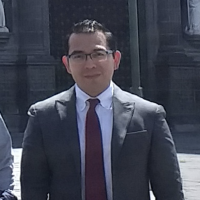
Jesus Manuel MUNOZ-PACHECO has a Ph.D. in Sciences from the National Institute for Astrophysics, Optics, and Electronics (INAOE), Mexico. He is a Full Professor-Researcher at the Autonomous University of Puebla (BUAP), where he leads the research group Chaos, Fractional, and Complexity and directs the Ph.D. program on Applied Research on Electronics. Dr. Munoz-Pacheco is a senior member of the National System of Researchers (SNI), a top-level Mexican Government program through CONAHCYT/Mexico. Also, he is included in the "Stanford-Elsevier" World’s Top 2% Scientists List (for both single-year and career performances) 2020-2024. Dr. Munoz-Pacheco is also an Associate Editor and Editorial Board Member for several ISI scientific journals.
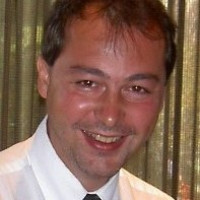




 Amerika Birleşik Devletleri
Web
Amerika Birleşik Devletleri
Web

Sifeu Takougang Kingni is an Associate Professor at the Faculty of Mines and Petroleum Industries of the University of Maroua, Cameroon since November
2020. In 2014, he received a joint PhD degree in Physics between the Vrije Universiteit Brussel, Belgium and the University of Yaounde I, Cameroon in
2014. He published around 100 papers in international journals and serves as a reviewer of several international journals. His research activities are essentially
focused on petroleum and gas engineering, physicochemical characterisation of water and the exploration of nonlinear phenomena in semiconductor lasers,
electronic circuits, optomechanics, Josephson junctions and fluid saturated porous media.
Professor Vinod Patidar is a Fellow of the Executive Leadership Academy (ELA) at University of California Berkeley, the Institution of Engineering and Technology (IET) and the Institution of Electronics and Telecommunication Engineers (IETE) of India. He has around 24 years (19 years post PhD; 9 Years as Full Professor) of rich experience in teaching, research and administration. An internationally acclaimed and awarded researcher in the areas of Nonlinear Dynamics and Chaos Theory, Modelling and Simulation, Chaos-based Cryptography and Image Encryption, steganography, and DNA Cryptography. Prof. Patidar has around 95 publications and over 4670 citations to his credit with an individual h-index of 23 and i10-index of 38. One of his papers has also received MOST CITED PAPER AWARD for Image and Vision Computing (Elsevier) journal and four of his research papers on ‘chaos-based cryptography’ have remained in the Sciencedirect top 25 lists of most downloaded articles published in the respective journals during various periods.
He has been a Visiting Scientist at the Helmholtz Institute for Supercomputational Physics, University of Potsdam, Germany and the International Centre for Theoretical Physics (ICTP), Trieste.
He has visited Germany, Italy, Greece, Canada, Nepal, Brazil, South Korea and United Kingdom for various academic/research purposes. He has been awarded various research & travel fellowships /grants/awards like DST Young Scientist Research Grant, SERB-MATRICS Grant, COSTED Travel Fellowship, CIMPA-ICPAM Travel Grant (twice in 2004 & 2010), DST International Travel Grant (twice in 2009 & 2012), CCSTDS Travel Fellowship, NBHM Travel Grant (twice in 2010 & 2011), Faraday Bursary (Faraday Institute, University of Cambridge), ICTP (Italy) Guest Scientist Grant, ICIAM Funding (twice in 2011 & 2015), ICM-2014 Nanum Travel Grant, ICM-2018 Open Arms Grant, CSIR Travel Grant, UGC Junior and Senior Research Fellowships, etc. Overall, he has mobilized around INR 5 Million for various research-related activities.
He is an Associate Editor of the Dynamical Systems Section of Frontiers in Applied Mathematics and Statistics (FAMS), Image Processing section of Frontiers in Signal Processing, Chaos Theory and Applications (CTA), Section Editor of Current Indian Science and a Reviewer of more than 45 international journals published by Elsevier, World Scientific, AIMS, AIP, IoP, IET, Springer, SPIE, IEEE etc. He is a Senior Member of IEEE, IEEE Signal Processing Society, IEEE Information Theory Society, IEEE Computer Society, International Association of Computer Science and Information Technology (IACSIT), International Association of Engineers (IAENG), Federation of Education Leaders and Administrators (FELA).
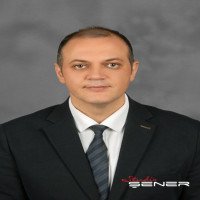


 Türkiye
Türkiye

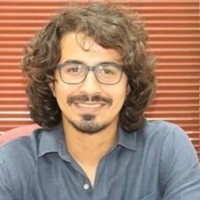
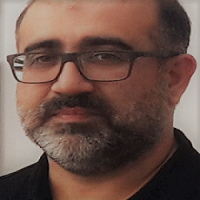
Yayın Kurulu Üyeleri
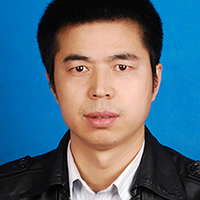
Pro. and Dr. Jun Ma: Department of Physics, Lanzhou University of Technology; Perferred E-mail: hyperchaos@163.com;
Pubication list: https://www.webofscience.com/wos/author/record/1609312.
Jun Ma received the M.Sc. and Ph.D. degrees from Guangxi Normal Univerisy and Huazhong Normal University for Theoretical Physics,China, in 2003 and 2010, respectively. My current research subjects mainly focus on the topics about pattern selection and control, neuronal network, neurodynamics, memristor, functional neuron models, dynamical control.
Professor Jun Ma has been appointed as Associate editor for Nonlinear Dynamics since 2015. He also serves as an academic editor for PLoS one since July in 2015, and associate editor for Int J Bifurcat Chaos from 2018 to 2023. He is kept as active reviewer for more than 75 international journals indexed in web of science.
The most distinct scientific contribution: 1) A feasible neuron model is proposed to estimate the effect of electromagnetic induction and radiation, and two different mechanism for death and shock in the heart suffered from electromagnetic radiation. 2) A group of functional neuron models are built to detect the temperature, illumination, magnetic field and acoustic wave. 3)He claimed that field coupling accounts for the activation of chemical synapses. 4)He clarified the physical evidences for integral and differential control in dynamical systems. 5)He claimed that the most suitable Lyapunov function should be the sole Hamilton energy function for dynamical systems. 6) A filtering criterion is proposed to explain the biophysical mechanism of frequency selection and wave filtering in auditory and visual neurons.
7)He defined a generic scheme for energy function of memristive maps, and adaptive law is proposed to control mode transition and parameter shift in biophysical neurons. 8)He suggested memristive membrane and neuron models with double capacitive variables for membrane potential of functional neurons.

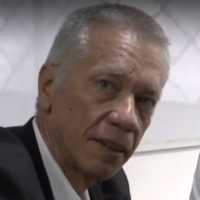

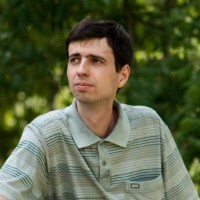
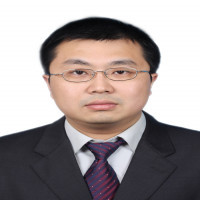
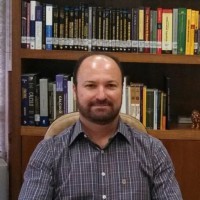
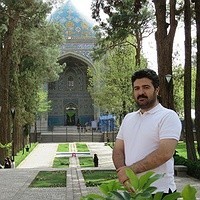
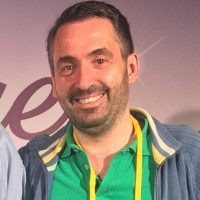
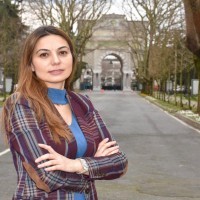
Chaos theory, complexity science, nonlinear dynamics, statistical physics of complex systems, interdisciplinary applications

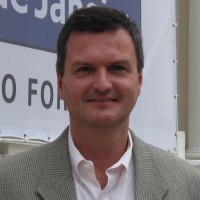
Marcelo A. Savi is Ph.D. in Mechanical Engineering and Professor at Federal University of Rio de Janeiro (COPPE - Mechanical Engineering) being the Head of the Center for Nonlinear Mechanics. He has published over 500 journal and conference papers, 5 books and about 18 book chapters. Awards and distinctions were received including: UFRJ solemn tribute to the most influential researchers in the world (Top 2%) based on PLOS Biology publication; COPPE Award Giulio Massarani of the Academic Merit; CNPq Researcher level 1A; Scientist of Rio de Janeiro. He is actively involved as advisor of graduate and undergraduate students. He has administrative experience as head of department, graduate coordinator, and university committees. He serves as Editor-in-Chief of the Journal of the Brazilian Society of Mechanical Sciences and Engineering (2024-present) and Associate Editor of some journals, where it is important to highlight: International Journal of Mechanical Sciences (2018-present); Journal of Vibration and Control (2017-present); ASME – Journal of Computational and Nonlinear Dynamics (2019-present). Research interests are related to nonlinear mechanics where it should be highlighted smart material and structures; nonlinear dynamics, chaos and control; biomechanics and ecology.


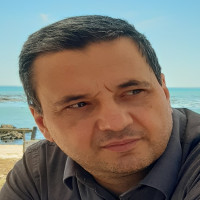
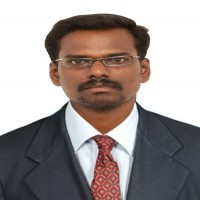
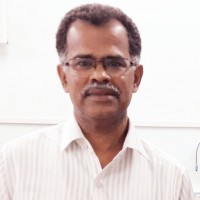

Kengne Jacques was born in Bamougoum, Cameroon, in 1971. He received his M.Sc., and Ph. D. degrees in Electronics in 2007 and 2011 respectively from the Faculty of Sciences/ University of Dschang. From 2010 to 2012, he worked as a lecturer at the Department of Electrical Engineering, IUT-FV/ University of Dschang. From 2012 to 2016 he served as senior Lecturer. In 2016, he was appointed Associate-Professor in the same University. He became full Professor of in November 2021. Prof. Kengne Jacques has authored or co-authored more than 180 journal papers. He also serves as reviewer for renowned international journals including IJBC, Commun Nonlinear Sci. Numer Simulat., Int. Journal of Dynamics and control, Nonlinear Dynamics, Chaos Solitons and Fractals, and IEEE Trans Circuits Systems. His research interest includes nonlinear systems and circuits, chaos, multistability, chaos synchronization with applications. Prof Kengne is an associate editor of Chaos theory and applications.
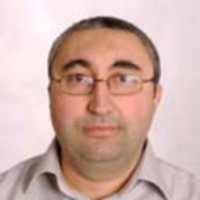
Fatih Kurugollu obtained BSc and MSc in Computer and Control Engineering degrees from Istanbul Technical University, Turkey, in 1989 and 1994, respectively. He was awarded a PhD degree in Computer Science from the same university in 2000. He was employed as a research fellow by the Marmara Research Centre, which is the main governmental research unit of the Turkish Scientific Research Council (TUBITAK) in 1991. He joined the School of Electronics, Electrical Engineering and Computer Science at Queen’s University, Belfast, UK, in 2000, initially as a Post-Doctoral Research Fellow. In 2003, he was appointed to a lectureship at the same department and later on was promoted to Senior Lecturer in Computer Science. He joined University of Derby, UK, as a Professor of Cyber Security in 2016. He has recently been appointed as a full Professor at University of Sharjah, UAE.
His current research interests are centered around AI based Security, Security and Privacy in Internet-of-Things, Security related Multimedia Content Analysis, Big Data in Cyber Security, Homeland Security, Security Issues in Healthcare Systems, Biometrics, Image and Video Analysis.
He has been the principal investigator and co-investigator of several projects funded by EPSRC, Royal Academy Engineering (RAEng), Leverhulme Trust, and Action Medical Research as well as the principal supervisor of several KTP projects funded by Innovate UK. He has supervised 11 PhD projects and he has authored more than 130 publications. He is a Senior Member of IEEE, a member of ACM, a Member of the Associate College of Engineering and Physical Sciences Research Council (EPSRC), and a Fellow of the Higher Education Academy (HEA).
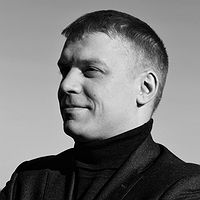
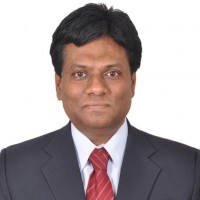
Dr. Sundarapandian is a Senior Professor in the Research and Development Centre at Vel Tech University, Avadi, Chennai, India. He has published over 500 Scopus indexed journal papers, and won national and international awards. He works in Science and Engineering Areas. He is a visiting faculty in many International Universities. He regularly conducts International Workshops in MATLAB, SCILAB, Dynamical Systems, Stability Theory, Data Science, Mathematical Modelling, Scientific Computing, Control Theory, Chaos Theory in International Conferences and International Universities, where he serves as a Visiting Professor.






 Türkiye
Web
Türkiye
Web
Elektronik, Gömülü Sistemler, Devreler ve Sistemler, Kaos teorisi ve Kaos tabanlı mühendislik uygulamaları.


Dr. Iqtadar Hussain is an Associate Professor at Qatar University, Qatar. He holds a Ph.D. in Mathematics with a specialization in Cryptography. His academic and research interests lie primarily in the areas of mathematical cryptography, information security, and related applications. Dr. Hussain is actively involved in teaching, research, and academic service, contributing to the advancement of both theoretical and applied aspects of cryptographic systems.
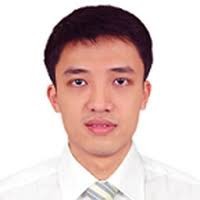
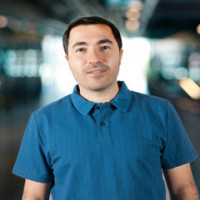
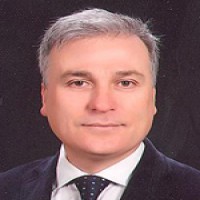





 Meksika
Web
Meksika
Web
Esteban Tlelo Cuautle received a B.Sc. degree from Instituto Tecnológico de Puebla (ITP) México in 1993. He then received both M.Sc. and Ph.D. degrees from Instituto Nacional de Astrofísica, Óptica y Electrónica (INAOE), México in 1995 and 2000, respectively. During 1995-2000 he was with the electronics-engineering department at ITP. In 2001 he was appointed as Professor-Researcher at INAOE. He has been Visiting Researcher in the department of Electrical Engineering at University of California Riverside, USA (2009-2010), in the department of Computer Science at CINVESTAV, México City, México (2016-2017), and Visiting Lecturer at University of Electronic Science and Technology of China (UESTC, Chengdu 2014-2019). He has authored 6 books, edited 14 books and more than 300 works published in book chapters, international journals and conferences. He is member in the National System for Researchers (SNII-SECIHTI-México) Level 3. He serves as Associate Editor in Integration-VLSI Journal (2013-Present), International Journal of Circuit Theory and Applications (2021-Present), Engineering Applications of Artificial Intelligence (2019-Present), Fractal and Fractional (2022-2025), Frontiers of Information Technology and Electronics Engineering (2019-2022), IEEE Transactions on Circuits and Systems I (2016-2023), and IEEE Transactions on Circuits and Systems II (2014-2015). He has organized special sessions in IEEE conferences (ISCAS’15, LATS’15, MWSCAS’14) and has been Chair and Technical Program Committee member of major conferences on circuits and complex systems. His research interests include integrated circuit design, optimization by metaheuristics, fractional-order chaotic systems, artificial intelligence, security in Internet of Things, and analog/RF and mixed-signal design automation tools.
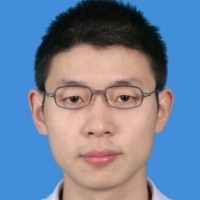
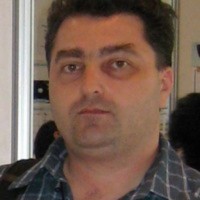
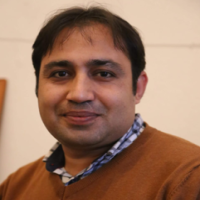
Jawad Ahmad (SMIEEE) is a highly experienced teacher with more than 13 years of teaching and research experience in prestigious institutes. He has conducted teaching and research at renowned institutions such as Prince Mohammad Bin Fahd University (KSA), Edinburgh Napier University (UK), Glasgow Caledonian University (UK), and Hongik University (South Korea), among others. He has also served as a supervisor for several PhD, MSc, and undergraduate students, providing guidance and support for their dissertations.
He has published in renowned journals including IEEE Transactions, ACM Transactions, Elsevier, and Springer, with over 200 research papers and 7,000 citations (H-Index 50). For several consecutive years, his name has been included in the world's top 2% scientists in Computer Science, as published by Clarivate (a list endorsed by Stanford University, USA).
In 2020, he received the endorsement of the UK exceptional talent candidate ("Emerging Leader") for his pioneering work in the field of Cybersecurity and AI. To date, he has secured research and funding grants of more than £250K in the UK and Norway, among others, as a Principal Investigator (PI) and a Co-Investigator (Co-I). In terms of academic achievements, he has earned a Gold Medal for his outstanding performance in MS and a Bronze Medal for his achievements in BS.


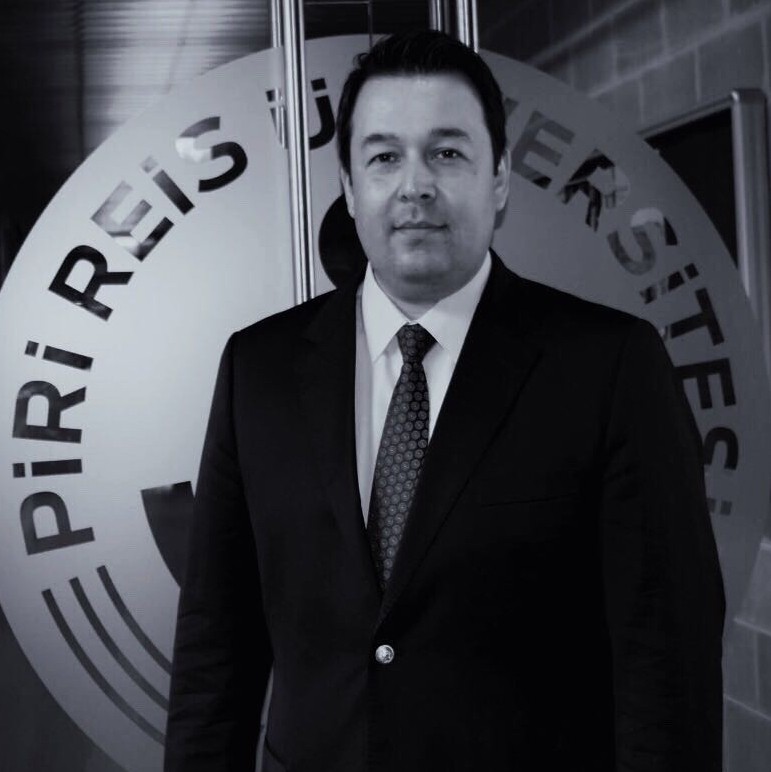
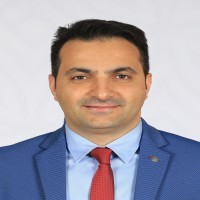
Yayın Danışma Kurulu Üyeleri
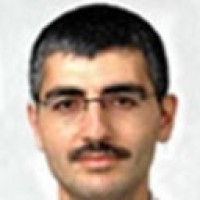
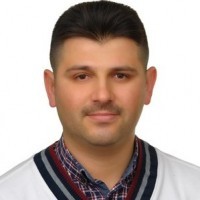
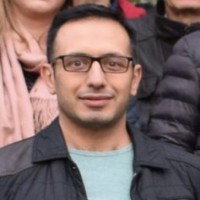
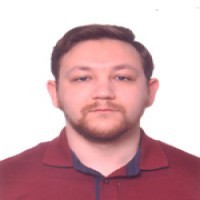

Uğur Erkin KOCAMAZ, 1979 yılında Malatya'nın Yeşilyurt ilçesinde doğdu. İlk ve orta eğitimini sırasıyla Sakarya Büyükgazi İlkokulu ve Sakarya Anadolu Lisesi'nde gördü. Kocaeli Körfez Fen Lisesi'nde başladığı lise eğitimini Sakarya Atatürk Lisesi'nde tamamladı. 1996 yılında başladığı, 1 yıl İngilizce hazırlık eğitimi de gördüğü Dokuz Eylül Üniversitesi Bilgisayar Mühendisliği bölümünden 2001 yılında mezun oldu. 2004'te Sakarya Üniversitesi Bilgisayar ve Bilişim Mühendisliği anabilim dalında yüksek lisans, 2018'de Sakarya Üniversitesi Elektrik-Elektronik Mühendisliği anabilim dalı Elektronik bilim dalında, 2024'te Sakarya Üniversitesi Bilgisayar ve Bilişim Mühendisliği anabilim dalında doktora öğrenimlerini bitirdi. 2003 yılı Aralık ayında Sakarya Üniversitesi'nde fen bilimleri enstitüsü kadrosu ile Araştırma Görevlisi olarak mesleki kariyerine başladı. 2012 yılı Aralık ayında Öğretim Görevlisi olarak Uludağ Üniversitesi Karacabey Meslek Yüksekokulu'na geçti. Aynı kurumda Ağustos 2022'de Dr. Öğretim Üyesi oldu. Hâlen bu görevini sürdürmektedir. Veri yapıları ve algoritmalar, yapay zeka, yapay sinir ağları, bulanık mantık, sinirsel-bulanık ağlar, kaotik sistemler, kaosun kontrolü, senkronizasyonu ve kaotik güvenli haberleşme alanlarında bilimsel çalışmalar yapmaktadır. Uluslararası dergi ve konferanslarda yayımlanmış çok sayıda makalesi ve bildirisi vardır. Bekârdır. Hobileri seyahat etmek, müzik dinlemek, film izlemek, resim yapmak, basketbol ve masa tenisi oynamaktır.
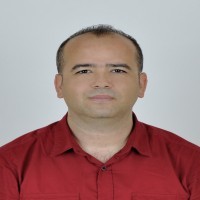
Erdinç Avaroğlu, 1979 yılında Türkiye'nin Adana kentinde doğdu. 2005 ve 2007 yıllarında İnönü Üniversitesi, Malatya Türkiye'den Elektrik Elektronik Mühendisliği alanında Yüksek Lisans derecesi ve 2009 ve 2014 yıllarında Fırat Üniversitesi, Elazığ Türkiye'den Elektrik Elektronik Mühendisliği alanında Doktora derecesi aldı. 2016'dan beri Mersin Üniversitesi'nde Bilgisayar Mühendisliği alanında doçenttir. Araştırma ilgi alanları Kriptoloji, Rastgele Sayı Üreteçleri, İstatistiksel Testler, Kaos ve Bilgi Güvenliği'dir.

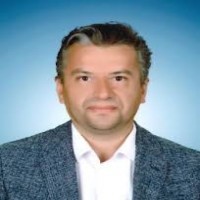
Doç. Dr. Hakan Kör:
Doğum Yeri ve Yılı: 1981, İskilip
Eğitim:
Anadolu Üniversitesi, Porsuk MYO, Bilgisayar Programcılığı (2002)
Balıkesir Üniversitesi, Necatibey Eğitim Fakültesi, Bilgisayar ve Öğretim Teknolojileri (2006)
Kırıkkale Üniversitesi Fen Bilimleri Enstitüsü, Bilgisayar Mühendisliği Yüksek Lisans (2013)
Kırıkkale Üniversitesi Fen Bilimleri Enstitüsü, Bilgisayar Mühendisliği Doktora (2017)
Kariyer:
MEB Bilişim Teknolojileri Öğretmenliği (2006-2009)
Hitit Üniversitesi Sungurlu MYO Öğretim Görevlisi (2009'dan itibaren)
Sungurlu MYO Müdür Yardımcılığı (2012-2014)
Hitit Üniversitesi Uzaktan Eğitim Merkezi Müdür Yardımcılığı (2014-2016)
Şu anda Hitit Üniversitesi Mühendislik Fakültesi Bilgisayar Mühendisliği Bölümü'nde Doçent olarak görev yapmakta.
Çalışma Alanları:
Veri Madenciliği
Karar Ağaçları Algoritmaları
Büyük Veri ve Analizi
Bulut Bilişim
Yaşam Boyu Öğrenme
Liderlik
Uzaktan Eğitim
Diğer Bilgiler:
İngilizce biliyor
Evli ve iki çocuk babası
Dergi Sahibi

Dr. Akif AKGUL was born in Izmir, Turkiye. Dr. AKGUL received his B.S. degree in Electronics-Computer Education from Kocaeli University in 2009 and in Electrical-Electronics Engineering from Sakarya University in 2013, M.S. and Ph.D. degrees from Sakarya University in 2011 and 2015, respectively, in Electronics-Computer Education and Electrical-Electronics Engineering. His Ph.D. thesis work was on chaos-based cryptology. He has been to The Institute of Electronics, Communications and Information Technology (ECIT) of Queen's University Belfast, United Kingdom in 2015 as a Visiting Researcher. His current research interests include random number generators, cryptology, data hiding, blockchain, IoRT, chaos-based engineering applications. Currently, he is Professor at the Department of Computer Engineering, Faculty of Engineering, Hitit University, Turkey, where he has been involved in projects concerning the study of chaos-based applications.
Dil Editörleri
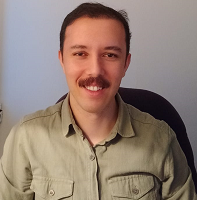
Muhammed Maruf Öztürk is currently an Associate Professor at Computer Engineering Department of Engineering Faculty at Suleyman Demirel University. He received his Ph.D. degree in Computer Engineering from Sakarya University. His main interests lie in artificial intelligence in software testing, energy-aware software systems, effort estimation, and hyperparameter optimization. He published several papers coping with software engineering problems.



 Türkiye
Web
Türkiye
Web
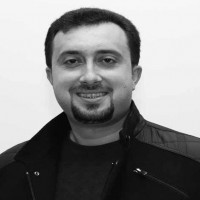
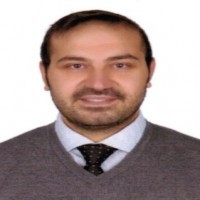
Teknik Ekip Üyeleri
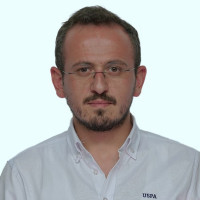


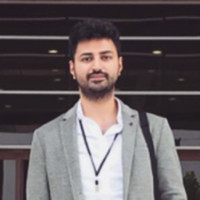
Chaos Theory and Applications in Applied Sciences and Engineering: An interdisciplinary journal of nonlinear science
The published articles in CHTA are licensed under a Creative Commons Attribution-NonCommercial 4.0 International License

